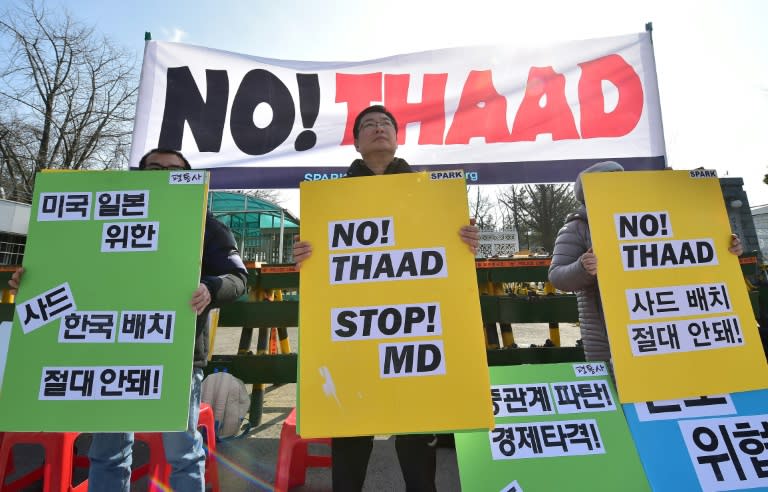Washington hopes to wrap up anti-missile deal with South Korea
The United States wants to wrap up discussions with South Korea on the deployment of a sophisticated defense system, the Pentagon said Friday, two days after North Korea's latest missile tests. Seoul and Washington have for weeks been in talks about deploying the advanced US THAAD missile system in South Korea to protect against the potential threat from Pyongyang -- a move vehemently opposed by China. "We would like to see these conversations, as I think the South Koreans would, wrapped up in an as efficient and timely fashion as possible," Pentagon press secretary Peter Cook said. He said discussions had "progressed well," but there were still "some details to work out." North Korea tested two Musudan medium-range missiles just hours apart on Wednesday. The first was seen as a failure, but leader Kim Jong-Un hailed the second as a complete success. South Korea has had reservations about THAAD -- the Terminal High Altitude Area Defense System -- primarily because of opposition from China, which sees it as a threat to its own nuclear deterrent. Beijing also fears the presence of more US military hardware on its doorstep will further tip the balance of power in the Pacific towards Washington. Pentagon officials spoke with South Korean and Japanese counterparts earlier on Friday to discuss the recent North Korean missile launches, Cook said. "All three countries reiterated their strong condemnation of these launches and urged North Korea to refrain from provocative actions that undermine peace and security and instead focus on fulfilling its international obligations and commitments," he told reporters. "The three noted that North Korea's provocations would only strengthen the resolve of the international community."



